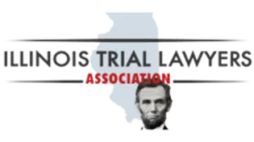What Happens to a House When the Owner Dies?

Date: 06/28/22
Author: Prime Law Group
As of 2020, 68% of all Americans don’t have wills. Without a will or testament, money and property can become lost.
Death can be a hard time for families. Don’t let an estate add to your grief and sadness.
If you find yourself trying to figure out what happens to a house when the owner dies, you have come to the right place. Continue reading this article to find out answers to your questions.
What Happens to a House When the Owner Dies?
When a loved one dies, everything can become still for a while. You need to be with your family members and friends. Worrying about ownership of homes should not be an issue once someone has passed away.
If you have ever seen a movie where a will is being read and transferred, you have been lied to. Seemingly everything goes perfectly with no issues. In reality, there are many complications and questions that need answers. It is often best to hire a real estate lawyer.
Understanding the process of property transfers is important. By understanding what may happen, you and your loved ones can prepare yourselves for an untimely death.
What Happens if There Is a Will?
A will can help guide you through what happens next. The person who left the will has left you a document of what goes to who and so on. The will must go into a probate court.
In the case that you have a will, the testator (person who wrote the will) could have left the property to anyone they chose. This person can be a friend, relative, child, or someone you may have never heard of. It is the testator’s right to list whomever they like.
This can be an easy process. If nobody objects to the will or disputes a decision made by the testator, things should be easy. However, if there is a dispute, it can take long periods to settle a will. There have been cases where families become divided over wills.
Once the will goes into probate, everything gets sorted out at the end of the process. Each person listed in the will must make sure they are receiving what they are legally entitled to and nothing more.
Death of homeowners can be hard to sort, having a will makes the process much easier.
What Happens if There Is No Will?
If there is no will, things can get complicated. If the testator does not leave a will, disputes will certainly arise between family members. When someone dies without a will, it’s referred to as dying intestate.
Each state has different rules and laws for the order of succession. Depending on where you live, you may face different rules for getting the rights to the property you feel you deserve.
In Illinois, the estate and decisions about the estate will fall to their immediate family. Illinois laws for intestacy include retirement savings, property, bank accounts, and anything they may own in their name.
Certain cases need to be brought to probate. In these cases, the judge will only select one party who will receive the distribution. The judge will select the order of succession based on who they deem fit.
In instances where no person is named, each beneficiary must go before a judge. The judge will then select beneficiaries based on their discretion. A judge cannot outright ignore the order of succession if there is one present, however, certain states approach this differently.
What if There Is a Will but It Has Issues?
If you have ever seen the movie, Knives Out, you know what problems with a will can look like. Testators could write something that might not make sense or has things crossed out. The testator may also leave certain things to people not listed in the will.
There are cases in which a person named in a will is dead. You will need to correlate with state laws when this happens. The property will most likely go to the primary beneficiary’s descendants or the residuary beneficiary named in the will. If everything sounds confusing, a lawyer can help.
You may receive several types of property ownership. Your ability to receive this ownership depends on who wrote the will, when they wrote it, and how the will is interpreted.
Grounds for a dispute in a will include:
- The mental state of the testator
- The age of the testator
- Witnesses to the writing of the will
- Contents of what is listed in the will
- If the testator was pressured or under duress
The probate court will need to step in if the will is contested or corrupt. If there is an earlier version of the will, this can will be relied upon to settle things. Other outcomes could include a new order of succession or a testimony. This will show who gets what.
If only part of the will is invalid, you will have an easier time getting things sorted out. When a will has several errors or laced with duress and pressure, the process can take a long time.
Frequently Asked Questions
Many wills have the same issues. Because of this, here is a comprehensive FAQ section that has the most asked questions regarding wills and estate planning.
What if There Are Multiple Owners?
This occurs when a testator leaves property to many different people. Who gets what? How do you know what they meant? It’s not like you can break off part of the house and take it with you.
When this happens you need to file a deed. You must complete a deed of distribution. In doing so, you will be able to identify who owns what, what goes to who, and who has what rights.
Co-owners can legally list beneficiaries to what they have been given. If one of the co-owners dies and passes along their ownership to a child of theirs, the other co-owners will keep their ownership status.
Co-owners only own part of the property. This means that neither co-owner can sell the property unless the other co-owner approves. This is a common occurrence that has several useful strategies such as:
- Renting the property and dividing the income
- Selling the property and dividing the income
- Both co-owners live in the house and one pays the other
- Take on different responsibilities such as restoring the property or finding new tenants
Everyone needs to feel equal in these cases. If one person does not agree or see eye-to-eye with everyone, more issues will arise. Everyone needs to maintain a level head and be patient.
What Kinds of Deeds Are There?
No matter what the will looks like, deeds need to be present and filed. The property will not switch ownership until the deeds are completed. If someone moves into a home right after their parent dies, they do not have any legal rights to be there.
There are several types of deeds that you may need to fill out. A Quit Claim Deed is the least used deed in wills. This deed is used to convey the deed to the person who receives the deed.
An Executor’s Deed and an Administrator’s Deed are similar. The two deeds main purpose is to transfer property to different owners when there is no will. An Affidavit of Death Deed is used to remove the name of the dead owner of a property. This is used with or without a will and will let the property go into the ownership of someone new.
What Is a Vested Property Right?
Vesting refers to a property right that can’t change. Vesting rights are talked about frequently during the probate phase. It is a common occurrence for wills to require a property right vest.
A common example of this is when there is a delay on purpose. A will can have a pause between the death of the writer of the will and the rights of the property can vest.
Wills can contain specific dates. In these cases, property rights will not differ or switched until that specific date or even has arrived. A will might state that a certain amount of money is to be given to someone after they turn 21.
Reach Out to Us Today
Dividing a will and estate can be stressful and confusing. If a loved one has died without a will for you to follow, things can be even harder. Tensions can rise and families can grow resentment toward each other.
If you and your family have recently suffered a loss, let us be there for you. We will help you with what happens to a house when the owner dies. Contact us today to get started.






